Row erupts over Geneva cross-border workers
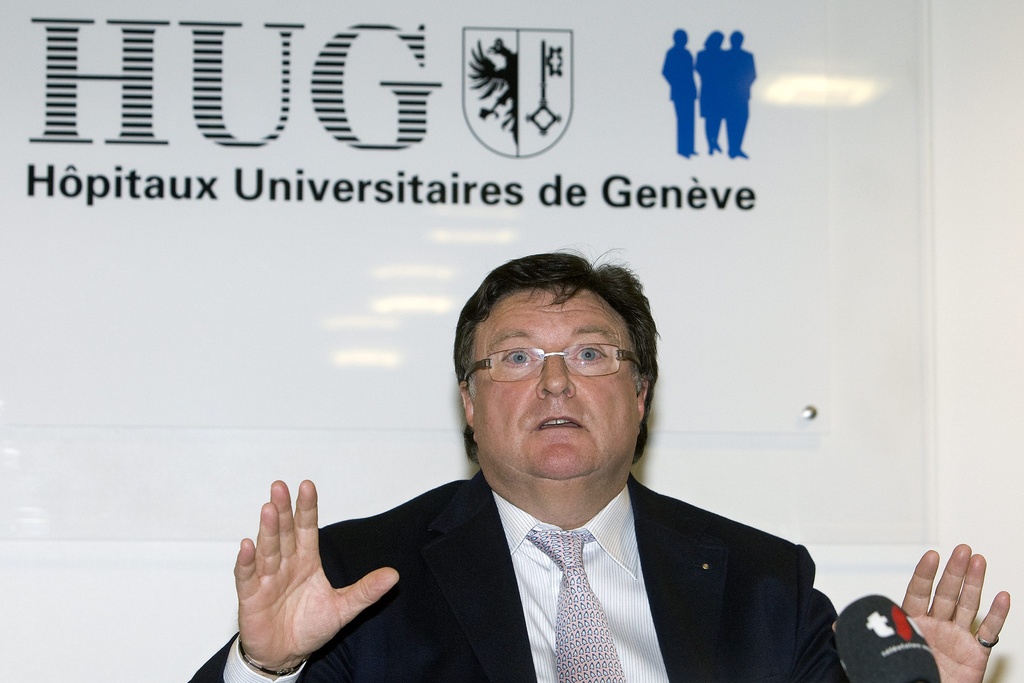
A move by the head of Geneva University Hospital (HUG) to limit the number of cross-border workers from France in top posts has stirred up a hornet’s nest.
Critics – in Switzerland and in France – have blasted the decision as discriminatory and some question its legality, claiming it could cause problems with the European Union.
In a speech to HUG staff on February 10, director general Bernard Gruson outlined his decision to favour Geneva residents over cross-border workers residing in nearby France when examining candidates for head of unit positions.
The decision is based on encouraging “proximity of healthcare with local concerns and on ensuring a balance of representation,” said Gruson.
Out of the 165 heads of unit at HUG, 110 are cross-border workers. On average 40 per cent of all HUG health personnel live across the border; this rises to 60 per cent for nursing staff.
Gruson said he had received complaints from some staff about the imbalance: “It’s not at all about ostracising people but my role as director is to act as arbitrator over dissatisfactions.”
The HUG director added that he had received numerous messages of support for his position.
“It makes good sense,” Christian Democrat Pierre-François Unger, Geneva minister of the economy and health, and a doctor by profession, told the Tribune de Genève newspaper.
“There is a real under-representation which is also badly understood by colleagues who live in Geneva…when the balance is compromised and it jeopardises social harmony within an organisation it has to be re-established.”
Criticism
But the move has also come in for heavy criticism on both sides of the border.
Jean-Jack Queyranne, president of the Rhône-Alps regional council, expressed his “shock” at the “discriminatory” remarks, which he said ran contrary to the spirit of the Franco-Valdo-Genevois cross-border urban project currently in development.
“The contribution of cross-border workers to the Geneva economy is fundamental,” he wrote on his blog. “To try to marginalise people can only lead to tensions.”
Michel Charrat, president of the European cross-border worker group, said staff often ended up as cross-border workers as they could not find places to live in Geneva due to high prices and very limited accommodation.
In a media statement the Swiss public services union accused Gruson – a member of the Christian Democratic Party – of political manoeuvring on territory occupied by the populist Geneva Citizens’ Movement (MCG) and the centre-right Radicals ahead of the 2013 elections. It also claimed Gruson’s aim was to divide and govern among groups within the HUG.
Fighting unemployment
The controversy appears to be unique to Geneva, with no reports of similar problems elsewhere in Switzerland.
Experts say the growth of the Geneva economy has naturally required resorting to cross-border and foreign labour to fill certain jobs.
In the medical field the HUG has regularly used cross-border workers from France due to a chronic lack of trained nurses. An estimated 80-100 new nurses qualify every year in Geneva, while 200-220 are taken on by hospitals and other health facilities.
The canton regularly suffers from the worst unemployment level in Switzerland – currently five per cent. Salaries are attractive and as a result competition for jobs is more acute between local unemployed people and external job applicants, whether cross-border, foreign or from other cantons.
To try to combat the problem the Geneva government last year launched the idea of “cantonal preference” to prioritise the recruitment of unemployed Geneva residents over cross-border workers. This was extended to a handful of state employers such as the Geneva transport service (TPG) and Geneva airport last December.
Legal concerns
The free movement of persons accord between Switzerland and the European Union that entered into force in 2002 states that an employer must not discriminate based on nationality.
Nicolas Levrat, a legal expert from Geneva University’s European Institute, said referring to residence as in the HUG case was “borderline”.
“Potentially the cantonal preference could be problematic but most EU countries have practices favouring locals,” he told the Le Temps newspaper.
But Gabriel Aubert, an employment specialist at Geneva University, said discriminating against cross-border workers was “a legal violation, the same as refusing to employ women” and risked causing problems with the EU.
“This is a major gaffe that will weaken Switzerland’s international position,” he told swissinfo.ch.
Senior French politicians have been following the affair closely. On February 21 Bernard Accoyer, president of the French National Assembly and a Haute-Savoie parliamentarian, issued a statement denouncing discrimination over place of residency or nationality which “could be condemned by the European Court of Human Rights”.
He added that, at a time when Switzerland was looking to seek progress with the EU on a number of bilateral accords, there should be “greater vigilance”.
“It’s advisable for the European Commission’s mixed commission responsible for monitoring bilateral accords to check the employment modalities of French workers,” he commented.
Switzerland is facing a dearth of health workers. It is estimated that every year it trains about 5,000 too few new healthcare workers.
Some cantons want to tackle the problem by relaxing the so-called “numerus clausus”, legislation limiting access to medical studies at universities. Others are trying to make the job of doctor more attractive by improving conditions.
Since the Schengen agreement came into effect in 2008, making it easier for Swiss firms to hire citizens from the European Union, strong demand for qualified staff has helped fuel migration to Switzerland.
Depending on the job category, 30 to 40 per cent of Swiss hospital staff are foreign, most coming from neighbouring Germany.
In 2010 an estimated one in two doctors came from nearby Germany; one in three consultants and one in four nurses hailed from across the border.
In 2011 an estimated 21,000 cross-border workers out of a total of 249,000 worked in the health sector, of these 7,300 worked in Geneva.
The Swiss health system cost SFr60.9 billion ($68.5 billion) in 2009 – making it the seventh-most expensive in the world.
This represented 11.4% of Swiss Gross Domestic Product, nearly 2% above the OECD average.
Health policy is defined at the federal level but Switzerland’s 26 cantons enjoy a high degree of autonomy in health matters.

In compliance with the JTI standards
More: SWI swissinfo.ch certified by the Journalism Trust Initiative

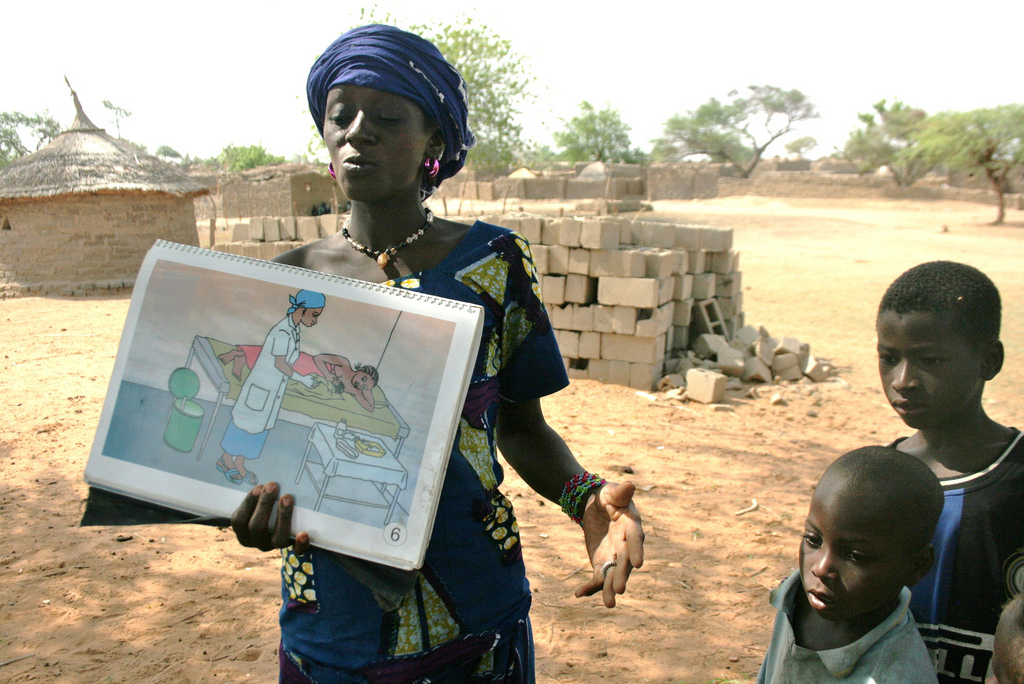
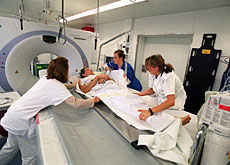
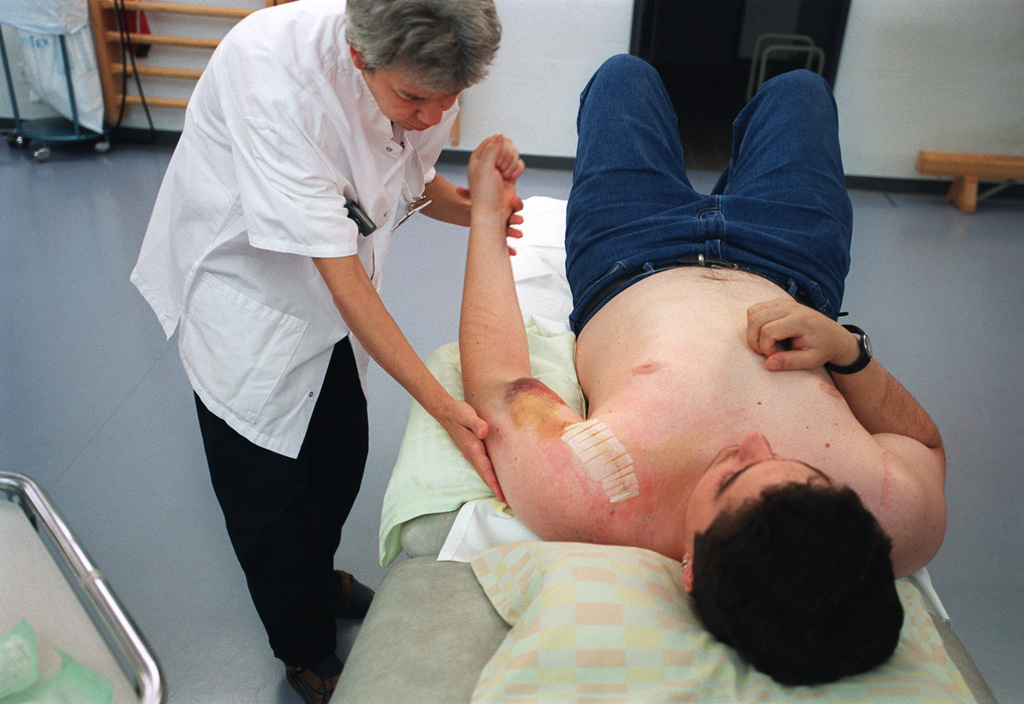

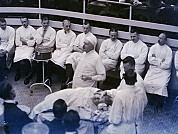

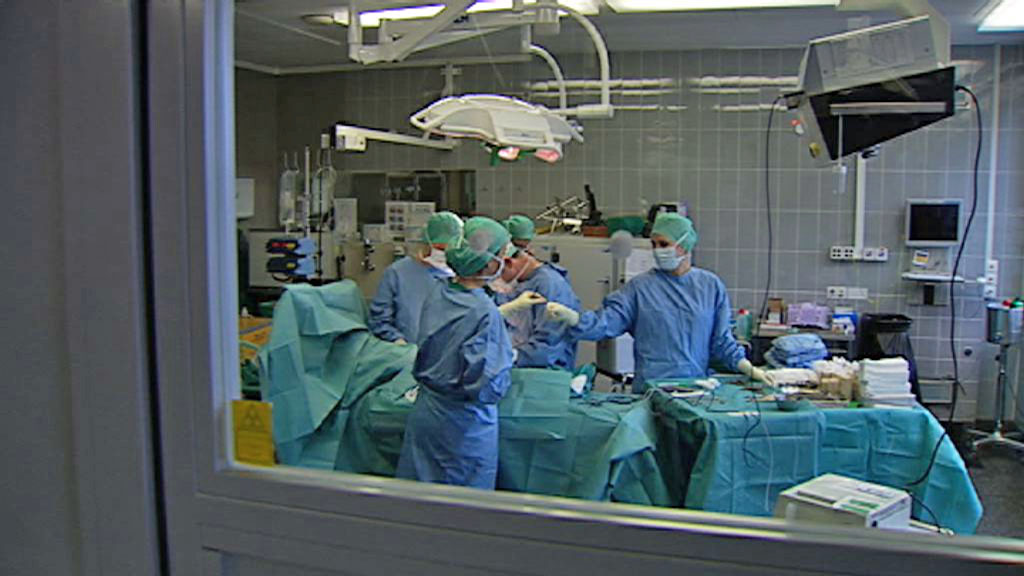
You can find an overview of ongoing debates with our journalists here. Please join us!
If you want to start a conversation about a topic raised in this article or want to report factual errors, email us at english@swissinfo.ch.